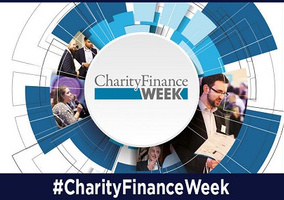When I entered the world of charity finance a quarter of a century ago, the culture was overwhelmingly pale, male and stale.
Whereas I would frequently walk into a room and be the only woman, I’m happy to say today those rooms typically contain a wonderfully diverse mix of people. It’s not the only thing that’s changed.
When I began, the charity sector was seen as the final step in your career – a nice easy staging post before retirement. Today, it’s viewed as a specialism in its own right, with a range of professional qualifications to match.
In the early days, it was assumed that only people who’d worked in the private sector had commercial experience – a far cry from today where every penny counts and charities need to show commercial nous in order to survive.
However, the thing that really separates our world from the commercial sector is the spirit of collaboration. You wouldn’t get the finance director of Shell picking up the phone to the finance director of BP, but that does happen in our sector, even though charities are in many ways in competition with each other.
That’s the thing I will cherish most as I take my leave. Whether you’re working in finance, like me, or on the frontline, everyone is there because they are passionate about the charity and its values. Here’s what I’ve learned.
We need to embrace technology
When I started, although BACS existed, we still processed payments by cheque – about 300 of them a week.
Technology can have a hugely positive impact, and artificial intelligence (AI) will revolutionise how we work, but it’s vital the right support is in place to enable staff to use it. And we shouldn’t throw the baby out with the bathwater – no matter how sophisticated AI becomes, it can’t replace the human touch.
We need to be better at telling our story
Throughout my career, I’ve frequently been told by family and friends: “I will only donate to a charity that pays no administration costs.”
Arguing that volunteers are probably not best placed to manage multi-million-pound operations with complex governance, safeguarding and regulatory needs falls on deaf ears.
As a sector, we need to get better at telling the story of what charities have to deal with, in their frontline operations and their all-important support activities. We need to be effective and commercial as well as consider what’s in the best interests of the charity.
There is still too much regulation
Being a finance professional within a charity is tough. Taxation is more complex than in other organisations and statutory reporting can be very demanding. Currently, charities with incomes over £500,000 are classed as “large” for SORP reporting, requiring knowledge and application of all the different types of disclosure that requires.
This is unacceptable, with demands on charities that can’t afford to employ or contract expert support being far too high. Let's hope the new SORP will address this, with reporting tiers amended to remove reporting requirements on smaller charities.
Impact investment is the future
At City Bridge Foundation, we’re moving to a position where not just our funding but our total assets can be harnessed to do good for people and the planet. Imagine that multiplied across a sector where the largest endowed foundations have over £84 billion in total assets.
We’re now seeing a growing number of investment products that can deliver against both financial returns and a positive social or environmental impact. For me, this is key for the future if we want charities to deliver maximum impact.
Karen Atkinson is outgoing finance director at City Bridge Foundation
Related articles












